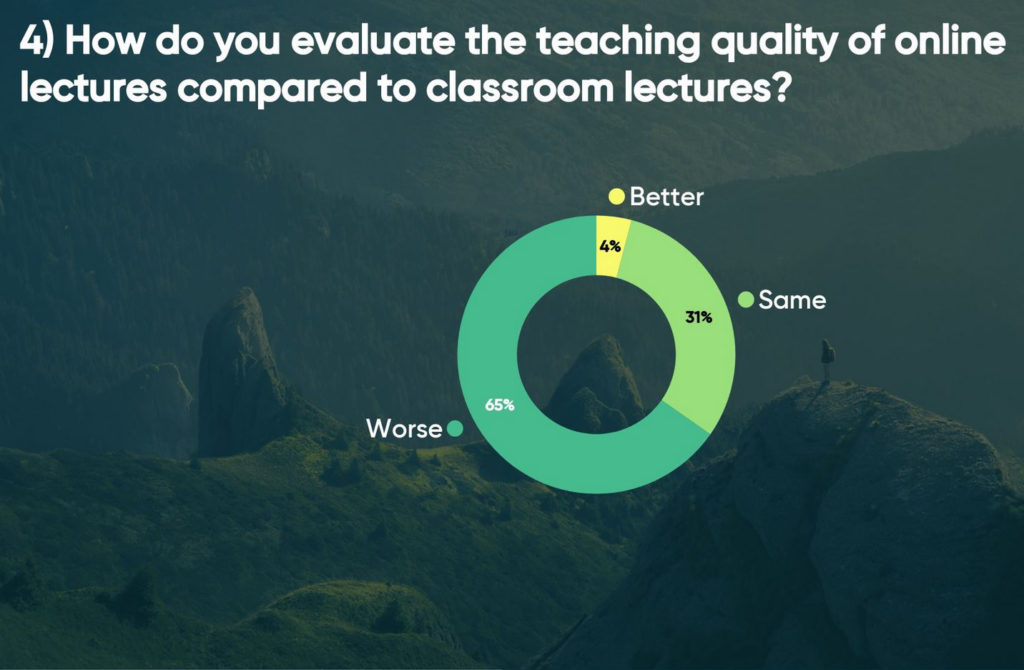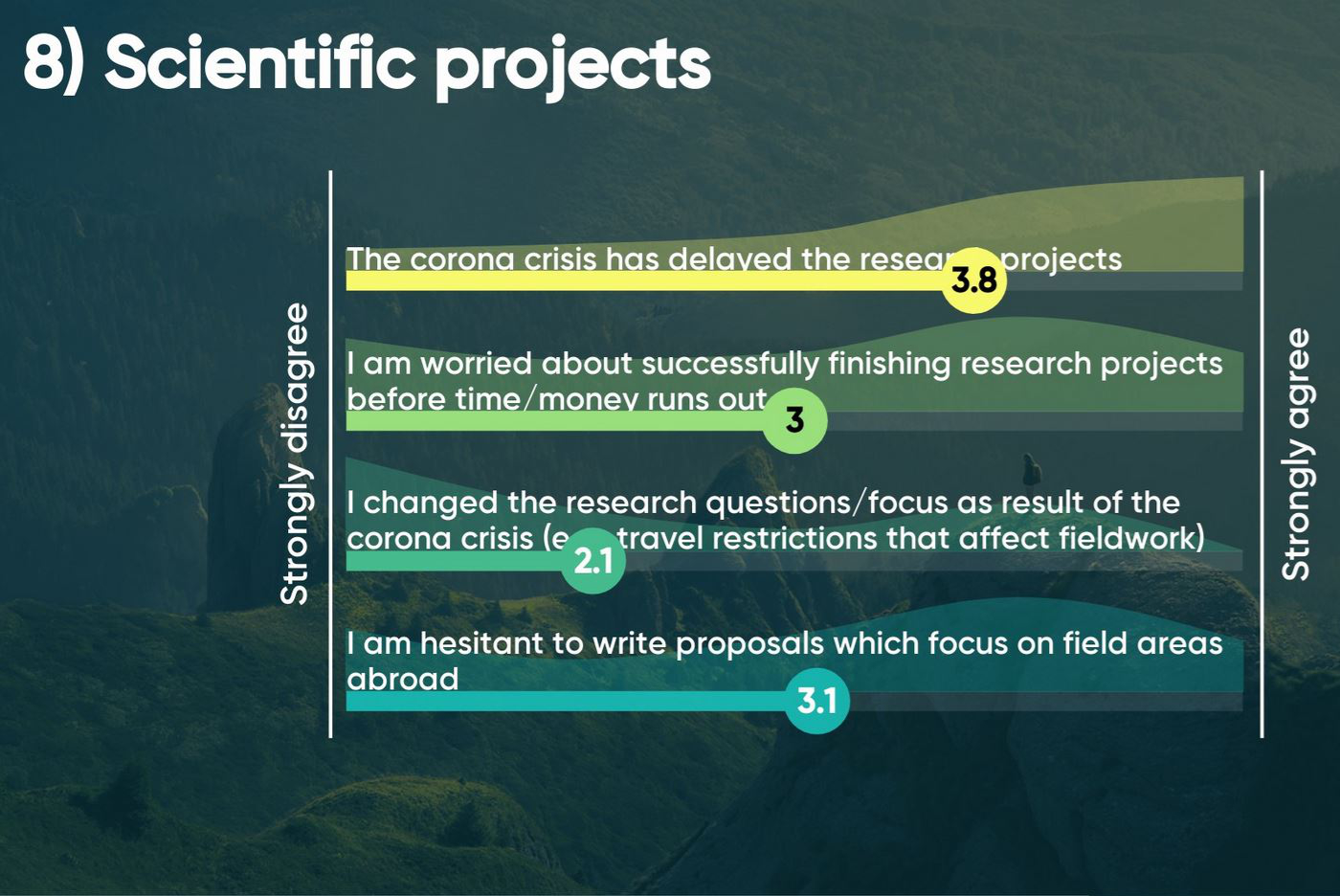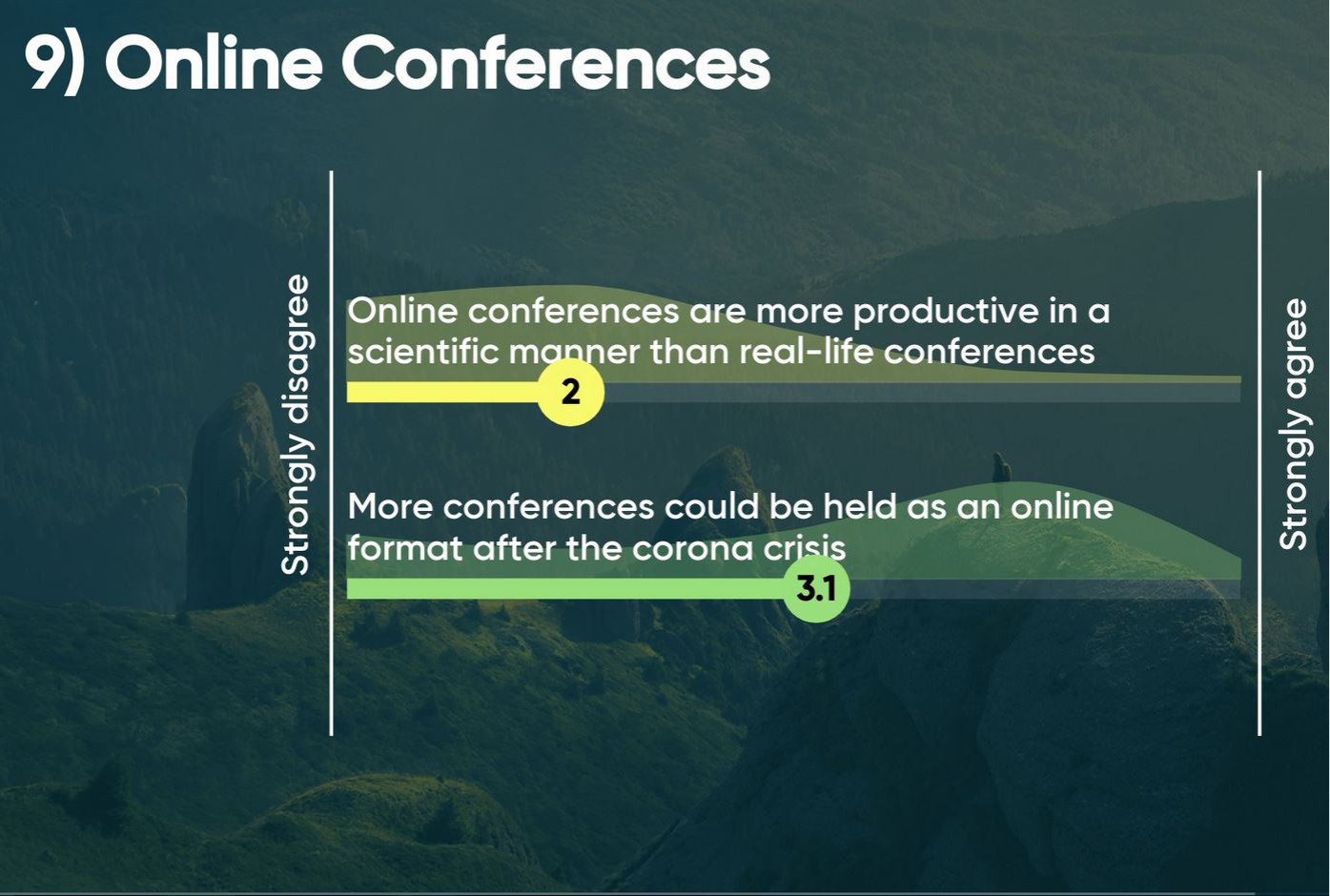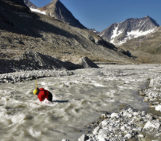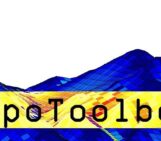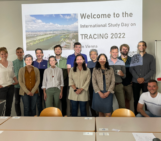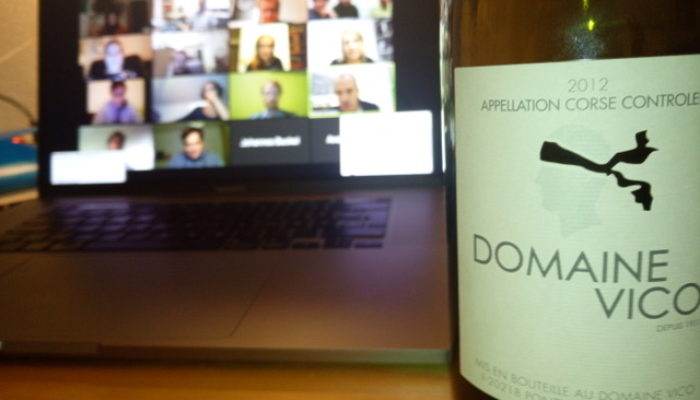
– Authors: The German Young Geomorphologists (Renee van Dongen, Jörn Profe, Steffi Tofelde, Janek Walk, Mario Kirchhoff, Julian Trappe, Johannes Buckel, Stefan Haselberger, Simon Meyer-Heintze) –
COVID-19 Pandemic has changed the world this year. We as scientists are affected by this pandemic, but we can mostly work from home and most importantly, we can conduct our jobs.
Nonetheless, certain things have changed for us. Many of us had to find new ways and formats to switch from classroom teaching to online teaching. Research projects got delayed and scientific conferences, which are important for networking and social interactions with colleagues, were hosted in online formats.
We, the German Young Geomorphologists usually organize the social event during the annual meeting of the German Working Group of Geomorphology. Since the conference was hosted as an online format, we asked ourselves: Is there an attractive virtual alternative for our social event? As a solution we organized an online group discussion under the topic “Pandemics vs. Academia – How do you deal with teaching/fieldwork/research projects in the current situation?”. Instead of meeting up in a bar in the evening, all conference participants were invited to join our online social event with a drink at home. The online discussion was based on the results of an anonymous questionnaire, which was filled out by 48 to 53 (depending on the question) geomorphologists before the online meeting started. The majority of the questionnaire participants were Postdocs (57%), followed by PhD-Students (28%), but we also received some replies from Assistant-Professors (6%), Professors (6%), and BSc./MSc. Students (4%). The online discussion was attended by 25 to 30 persons. In this blogpost, we will share the results of the questionnaire, followed by a summary of the online discussion. We asked the participants how COVID-19 affects the (A) teaching, (B) scientific projects, and (C) scientific communication science in online conferences.
Online teaching
About 65% of the participants agree that the quality of online teaching is (currently) worse than classroom teaching, whereas 31% think that the quality is similar and 4% hold the view that the quality of online teaching is better. The given reasons for the reduced teaching quality were (1) the limited time to prepare for online teaching material, (2) the limited direct contact, i.e. the lecturer cannot see whether the students have understood the topic, and (3) the big challenge for students to motivate themselves and independently organize their study schedule, which particularly applies for first-year students. The participants especially expressed their difficulties with teaching GIS-courses since they require intensive supervision and, thus, are usually taught as tutorials in computer rooms.
According to the experiences from online discussion attendees, students could better motivate and structure themselves, if recorded lectures were only online for limited time or when lectures were only offered as live-stream. Also, calling out names of students from the participant list actively engaged students in the discussion. Further suggestions to motivate and engage students were (1) embedding questions in video tutorials that must be answered before students can proceed, (2) providing only short videos on particular topics, accompanied by corresponding exercises, (3) breakout rooms in synchronous web conferences to foster discussions among students, (4) weekly exercise sheets that need to be submitted prior to a new lecture block, and (5) by giving the students more responsibility by having small sections of a lecture or seminar prepared by them.
We think that lecturers should not fear to lose their jobs because they will be replaced by online teaching material. We are human beings and need personal contact. Most students prefer classroom lectures and are happy to interact with their fellow students. Furthermore, geomorphology is a field of study for which field excursions are essential; this cannot easily be replaced by online alternatives.
The universities of 57% of the participants decided to offer field excursions during the corona pandemic (under strict hygienic standards), 38% with reduced numbers of students, and 19% in a usual format of presence. About 13% said that their university had canceled the field excursions and 23% postponed them to next year. Everybody agreed that field excursions are essential for geomorphology studies.
Scientific projects
The research projects of 67% of the participants have faced delays due to the COVID-19 pandemic, and about 46% of the participants are worried about successfully finishing their research project before time or money runs out. About 22% of the participants said that they had to change the focus or research questions of their research project, and 48% of the participants are hesitant to write research proposals that focus on research areas abroad.
The main reasons for research project delays were canceled fieldwork campaigns, which are often a key aspect in geomorphological research. But also limited laboratory access has affected some research projects. It became clear that German universities and institutions have currently varying regulations when it comes to fieldwork campaigns. Some have prohibited fieldwork entirely, others allow fieldwork in non-risk regions under strict hygiene conditions and regulations (e.g. campaign members have to do a test upon return). Some researchers have found a solution by training local scientists to continue collecting samples or conducting field measurements abroad. Many agreed that the training and collaboration with local scientists is something we should consider to foster in the future. Not only to ensure sample and field data collection during pandemics, but also to reduce the carbon footprint of geomorphologists. The participants were wondering how the funding bodies are currently evaluating projects – and plan to evaluate future ones – based on their feasibility related to COVID-19 related restrictions.
Online conferences
As final topic, we talked about online conferences. The majority (73 %) think that online conferences are less productive in a scientific manner than real-life conferences. But interestingly, 49% of the participants think that more conferences should be held online in the future. The reason for this clearly popped out from the word-cloud created by the participants’ answers on what they prefer about online conferences. Geomorphologists want to reduce their carbon footprint induced by travelling to conferences abroad. Among the other reasons were: reduction of travel time and better time management, flexibility, selection of sessions, accessibility, and lower costs.
However, the participants strongly agreed that real-life conferences are essential for, networking, social contacts, better discussions, and discovering new topics. In the online discussion, the participants stated that they could imagine to attend conferences in person in their home country or continent, where they can travel by train, but virtually participate in conferences overseas which are only accessible by plane. The participants therefore welcome the format of hybrid conferences, which, however, might be more challenging to realize for economic reasons. Online attendees wish not to pay high registration fees, but conference centers need financial resources to host the participants attending in person.
Finally, we discussed presentation options in terms of prerecorded talks or live talks via screen sharing. There was a strong agreement that live talks feel more personal, however, the availability of presentations after the conference is also recognized as an asset. The participants hope that good hybrid conference formats can be developed in the future.

